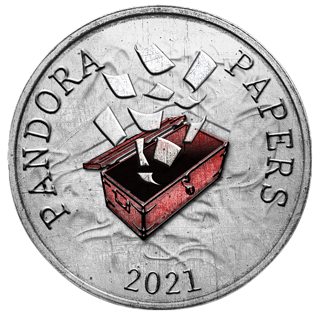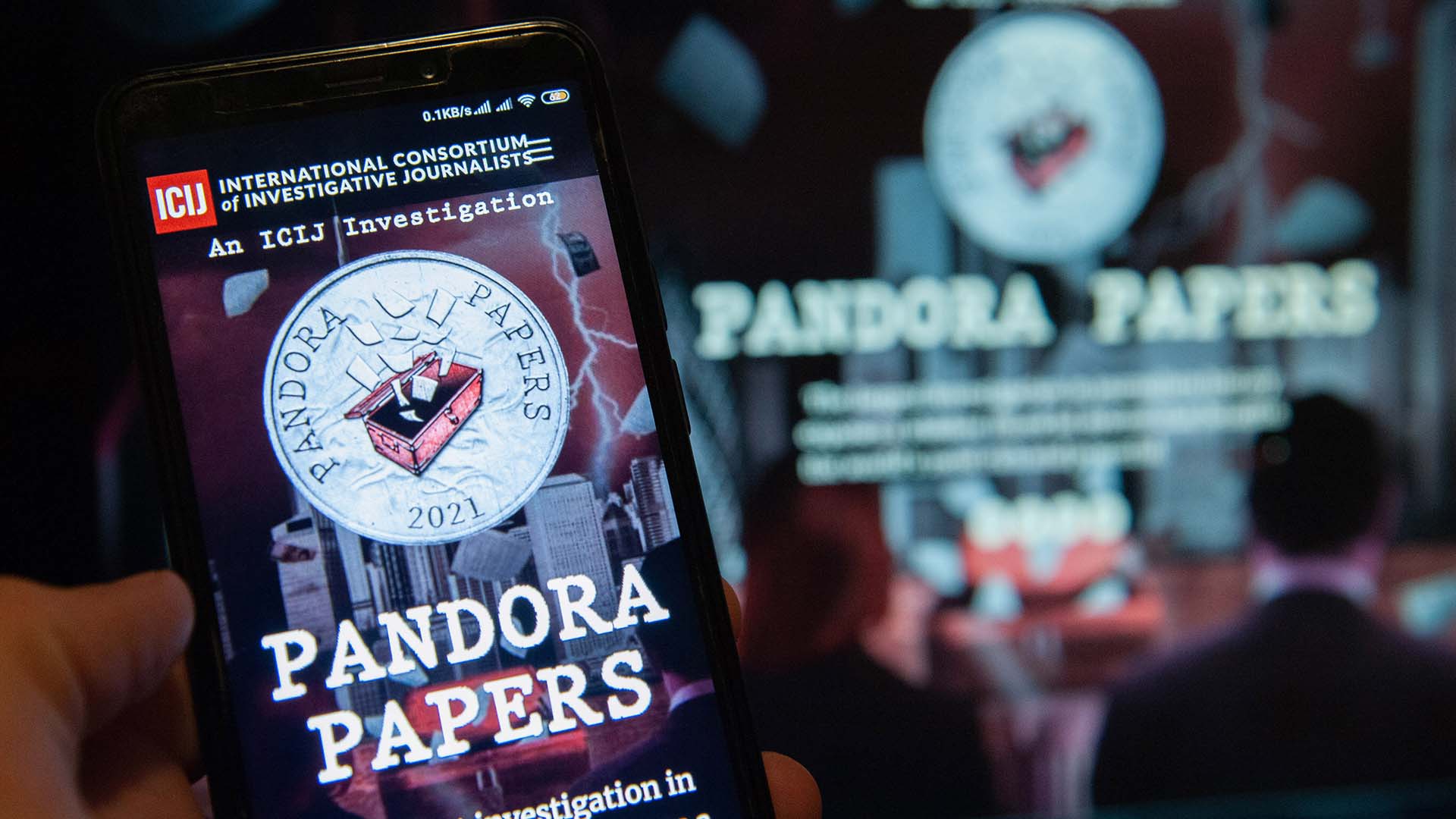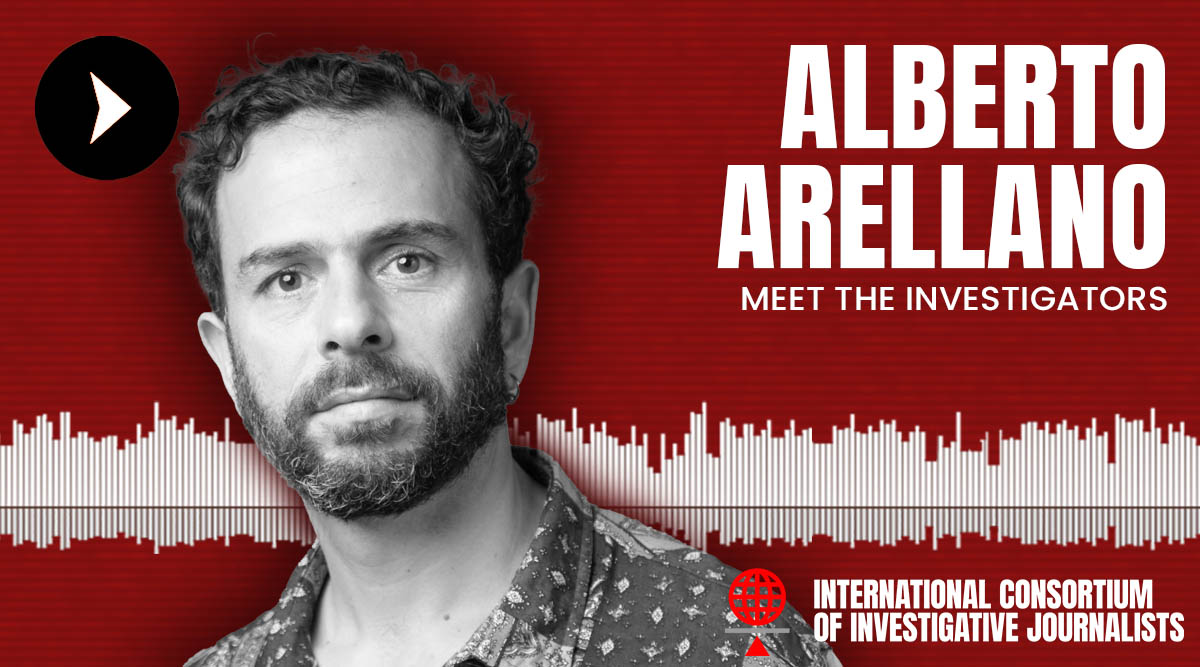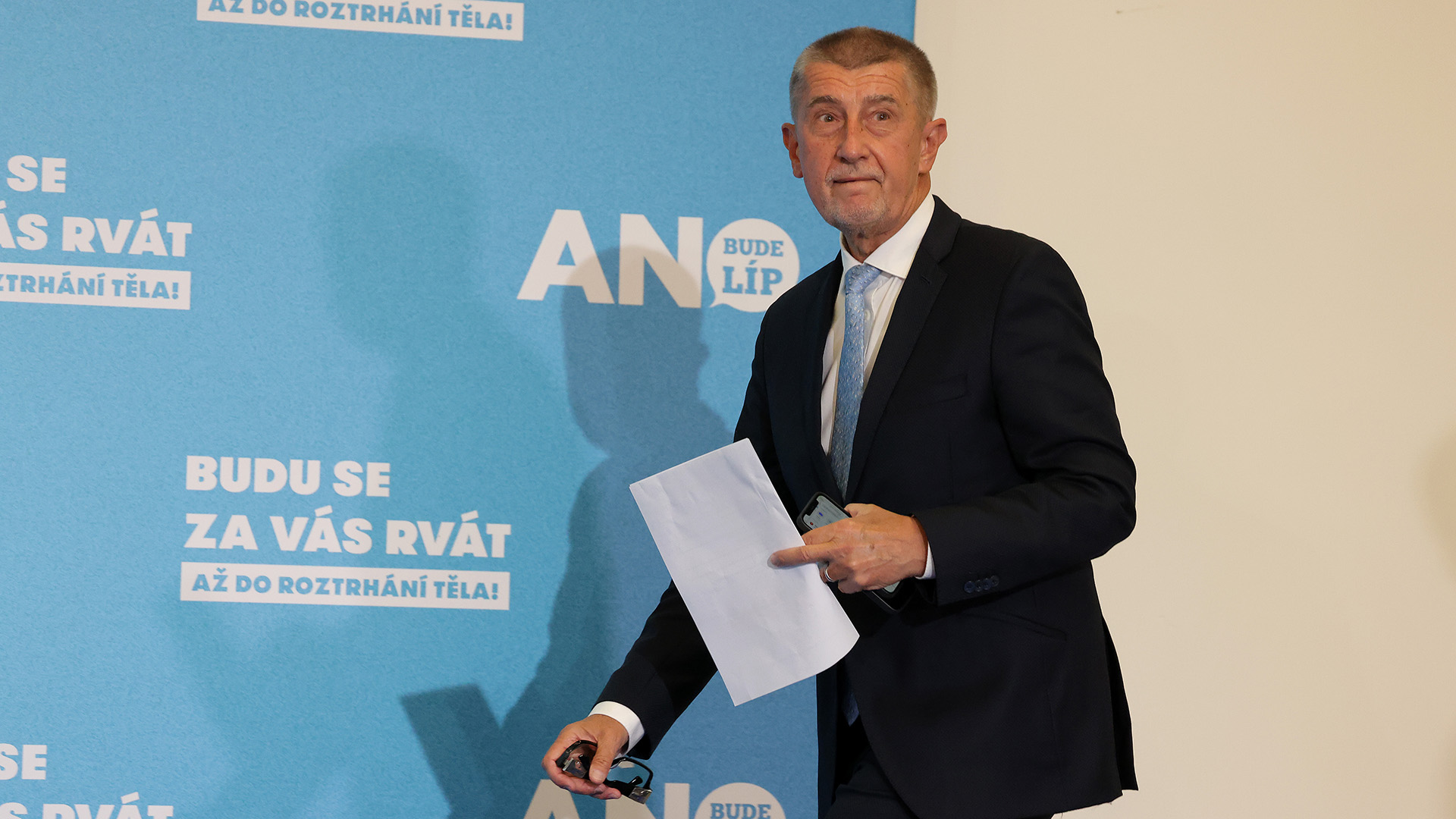MEET THE INVESTIGATORS
‘Even one hour after we published we started to receive threats’
One year after the Pandora Papers, we revisit one of the biggest stories of the investigation with our Czech member Pavla Holcová, and hear more about her extraordinary career in journalism.
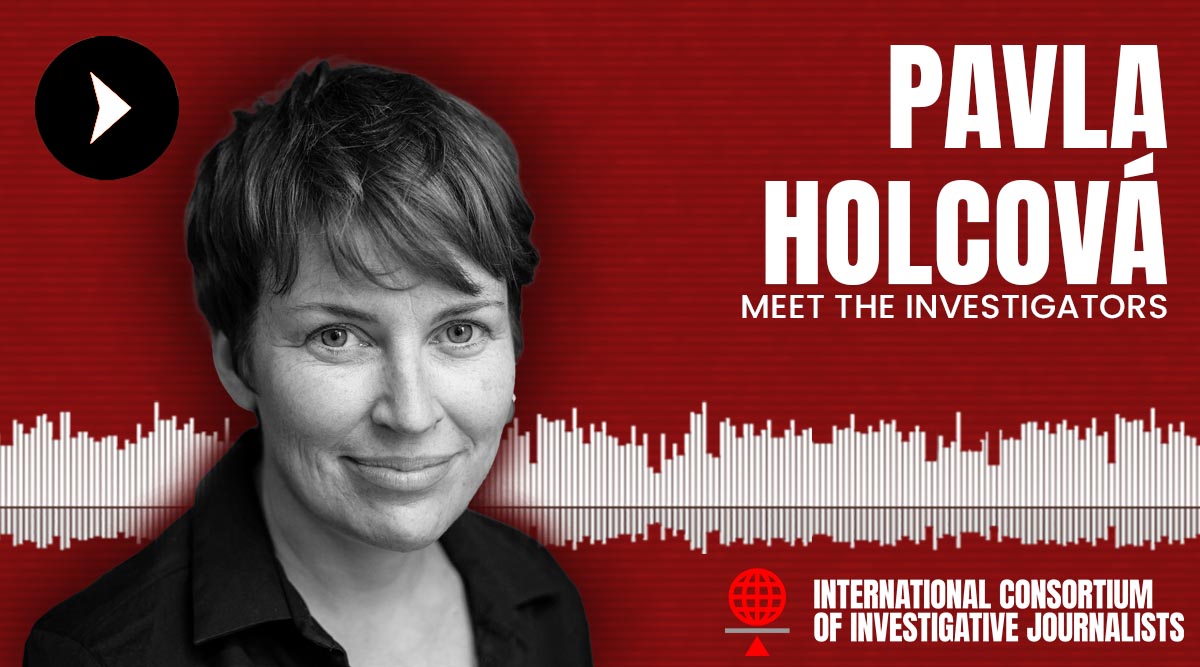
The International Consortium of Investigative Journalists collaborates with hundreds of members across the world. Each of these journalists is among the best in his or her country and many have won national and global awards. Our monthly series, Meet the Investigators, highlights the work of these tireless journalists.
October marks the one-year anniversary of the largest journalism collaboration in history: the Pandora Papers. In the last 12 months, the Pandora Papers has contributed to the downfall of governments, renewed calls for corporate transparency and official investigations into the offshore wealth of world leaders. This month we spoke to Pavla Holcová, a Czech reporter whose work in the Pandora Papers led to the surprise defeat of former Czech Republic Prime Minister Andrej Babiš, just days after she and colleagues published a story into Babiš’s secret real estate holdings. Pavla is the founder of Investigace, a Czech center for investigative reporting, a regional editor for the Organized Crime and Corruption Reporting Project and an ICIJ member since 2020. She was the 2021 winner of the ICFJ Knight International Journalism Award and is currently nominated for the prestigious Allard Prize, which will be announced on Oct. 19.
TRANSCRIPT:
Nicole Sadek: Welcome back to Meet the Investigators, a podcast from the International Consortium of Investigative Journalists. I’m ICIJ’s editorial fellow and your host, Nicole Sadek.
One year ago, ICIJ published the Pandora Papers. If you’ve been keeping up with our work, you know what the Pandora Papers are. But, if you’re new, here’s the quick rundown. More than two years ago, a whistleblower contacted ICIJ’s director Gerard Ryle, saying they had access to a trove of documents from inside 14 offshore service providers. Those documents contained information about how politicians and prominent business people used offshore firms and, in some cases, dodged taxes using complex corporate structures. Soon, the Pandora Papers project was born. And it was, well, a big deal. But don’t take my word for it.
[Audio clip Sky News]: It’s been described as the biggest-ever expose of financial secrets:
[Audio clip Good Morning America]: It’s a bombshell report based on the biggest leak of offshore banking data in history.
[Audio clip The Guardian]: The Pandora Papers are a stunning leak of financial secrets.
The project included more than 600 journalists from nearly every part of the globe. Each of those journalists followed two simple rules: first, share everything that you find in the documents or learn while reporting, and second, agree to a global publication date. More on that later.
But first, there’s no person better to hear from about the Pandora Papers than a journalist whose reporting led to a shocking election result in the Czech Republic. Her name is Pavla Holcová, and she is the founder of a Czech center for investigative reporting called Investigace, a regional editor for the Organized Crime and Corruption Reporting Project and an impressive member of ICIJ. Welcome Pavla.
Pavla: Hello.
Nicole: Pavla, it’s been a year since the Pandora Papers. How did you first join this project?
Pavla: I received a call from Jelena.
Nicole: That’s Jelena Cosic, ICIJ’s coordinator for eastern European partners.
Pavla: And she said, “Hey, there’s this new project. And there’s your Prime Minister in the documents. So do you think you want to be part of it?” And I said, “Yeah, I would be very happy. Let me see.” And when I try to explain this project to someone, I came to this kind of a metaphor: Imagine a truck load, you know, stuck with documents printed on paper, really millions of pages and that the truck is coming to your office and just, you know, throws all the loads in the middle of your office, and they give you the information. There may be like really crucial, really important information, but you need to find it. And that was the beginning of the project.
Nicole: The Czech partners found that their prime minister, Andrej Babiš, held secret real estate, a chateau, in France, that he purchased through a shell company. They traveled to Monaco, France and the British Virgin Islands to learn more about the company and the real estate. On one of those trips, Pavla’s colleague ran into an unexpected story.
Pavla: We sent him to British Virgin Islands to see the seat of the company and to understand slightly better how does it work at British Virgin Islands. But because he declared that his profession is a journalist, he was banned from entering British Virgin Islands. That’s the level of protection the government of British Virgin Islands is providing to its clients, that they don’t even let the journalists in. But we got lucky. And there was a tropical storm coming to British Virgin Islands. So my colleague and his partner, they were able to enter the islands, and they can only leave after the tropical storm was over. So they actually did pretty much the job they were sent there for. This was a story in a story because we really decided to go there and to see, and we got slightly different information than anticipated, but actually very valuable.
Nicole: What was the a-ha moment of the investigation?
Pavla: At the beginning, it was not such a really groundbreaking story because it was a very rich businessman who bought real estate in southern France and opened a restaurant there. So it would be like OK-story, kind of interesting, but not really like shaking. But the reaction of the prime minister when we started to ask him was very suspicious, very evasive.
You know, we have one colleague, and she’s really, really good at approaching people. And we just told her we have this problem that, you know, the prime minister is ignoring our emails. And he’s saying, “Tomorrow, tomorrow,” and we never get any reply. Could you approach him and ask him those questions because we really need to try hard to get the answers. And she said yes, and she and two other my colleagues, they applied to be accredited for a conference that the prime minister was holding, and it was in other part of Czech Republic, so they took the cars, went there, and only when entering the conference, they found out that they are marked red on the list. And that meant they got on a blacklist of people who won’t get access to this conference so won’t be able to ask the questions. And like, we are like, that’s really crazy, and we check who else is on the blacklist of those people who could not enter the conference. And those were other colleagues from the media who actually put their signatures to the questions we sent. So we went home, we made a decision that there will be another conference and maybe we should not ask those questions at the conference but at this brief moment between the Prime Minister Andrej Babiš exiting the car and entering the building. And that’s what actually happened. My colleague, Hana [Čápová], she approached him, asked the questions. He was ignoring her and the bodyguard pushed her away in kind of a slightly violent and not very polite way.
Nicole: There’s actually a video of this interaction, and I’m going to play it for you now.
Nicole: There’s a bit of commotion but you’re hearing Hana ask the prime minister, “Have you ever had an offshore company in the Caribbean?” He gets in the car and the door slams. One body guard tells Hana. “Go away!”
Pavla, was that a surprising reaction?
Pavla: Well, it was because, you know, any other kind of reaction, you know, he could say whatever, and it would make him look better. He can say, “Well, I was thinking about perfect Christmas present for my wife, so I bought her this like chateau in France,” or he could say, “Yes, it was a really good investment and nice offer, so I invested my money. It was before I entered politics, so why do you ask?” Whatever would be better than what he did.
Nicole: That’s a good lesson for why you should always approach the source.
Pavla: Exactly, exactly. That’s actually the point, and the lesson learned from this story; you really need to try hard, and then you might get a reaction that’s actually much better than some kind of PR.
Nicole: Investigace published the story five days before a general election that, by all metrics, saw Andrej Babiš winning. But, if Investigace had it their way, they would have published at a different time. Every ICIJ collaboration hits this roadblock. When you’re working with dozens, or in this case, hundreds of journalists around the world, it’s hard to agree on a publication date. And, naturally, some journalists have to make compromises. That was a lesson in collaboration for Pavla.
Pavla: We really tried to move the date, not to publish the story five days before elections. But, we, at the same time, we understood there are like elections every week. So there’s not a good time and a better time for publishing the story. We are going to be accused of influencing elections and so on. We will really get into shitstorm, what actually really happened after we published the story and after the outcome of elections. We just said, “Yes, we just need to brace ourselves for a really hard time. But let’s do it.”
Nicole: So what happened when you hit publish?
Pavla: We published the story on Sunday at half past six or seven, as agreed by — there was this global deadline. And at 8:30 p.m., there was like this super debate of party leaders of the parties that might win elections. And the story made it to the debate, you know. The moderator and the political opponents started to ask questions about the investments of Andrej Babiš. And he was not ready for it. He was not able to explain what is the story about, what are the offshores about where he took the money. Even one hour after we published we started to receive threats, hate messages, like, “You are agents of CIA and you are Americans and you want to really destroy fair elections in Czech Republic, and who’s paying you?” And those were hundreds of messages every day, every day. It even doubled after the elections and after it was obvious that Andrej Babiš lost. So many people blamed us. But still somewhere at back of your brain, it’s there. It’s sitting there and you think of it. How many of the threats could be real? How many of the people could really want to hurt you or kidnap you or other things they are actually hinting at? And of course it did affect my family as they were worried about me. But, you know, they know this trance that you’re working in from previous projects already.
Nicole: Threats against journalists are not to be taken lightly. And no one knows that better than Pavla, whose friend and colleague was killed, alongside his fiance, during his investigations into the Slovak government’s ties to the Italian mafia.
Pavla: When our colleague Ján Kuciak was murdered, I was working with him on a story that was connecting Italian Mafia ‘Ndrangheta and then-Prime Minister Robert Fico and you know, we were about to finish and publish the story, planning the trip to ask the members of the ‘Ndrangheta, the Italian Mafia, giving them, you know, like: “We are going to publish this article. Do you want to comment or anything?” And then Ján was killed and we were never able to finish the story.
We needed to send back strong message that you can kill a journalist, but you can’t kill the story. And if you’re going to kill a journalist, there will be 20 others finishing all the stories.
Nicole: At first, police thought the Italian Mafia was behind the murder. Later, they turned up a new suspect, Marián Kočner, a Slovak businessman whose suspicious financial dealings were the subject of Ján’s investigations. Kočner’s case is now before the courts. Instead of being scared off, Pavla and her colleagues were determined to continue Ján’s investigations.
Pavla: Ján and his fiancée Martina Kušnírová, they were killed at home, they were shot. And the message was clear; it was to silence the journalists to stop reporting on this Slovak businessman. So if we would quit, if we would really remain silent, we would fail. And we would fail not only as friends Ján, but we would also fail as a journalist. And regarding our security we needed to send back strong message that you can kill a journalist, but you can’t kill the story. And if you’re going to kill a journalist, there will be 20 others finishing all the stories, and they are going to be very upset and very motivated to really go after all those stories and expose all the wrongdoing. We later created one of the best investigative teams in Central Europe. And we gathered and shared and finished all the stories Ján started, and we were able actually to publish a set of stories that changed Slovakia.
Nicole: In 2018, Investigace obtained the police investigation files into Ján’s murder. The files implicated the Slovak businessman, Marián Kočner, and corrupt politicians. Investigace shared the files with other journalists in Central Europe and published stories based on the records. And then the public reacted.
Pavla: They went to the streets, they demonstrated, they demanded resignations, they were asking for explanations for the data, and then the leading political party lost elections, and 20 judges were charged. We just found out that the strongest organized criminal group in Slovakia, it was the police itself, like the top leaders of the police and some of the prosecutors were forced to resign or resigned themselves after we published the stories.
Nicole: Were you able to rejoice in that impact?
Pavla: You are not writing the story to take down the government and then be happy. You are writing the story to inform people, so there would be no one who could just explain, like, I didn’t know it, so I could not act upon it. For me, the joy came from the cooperation with other journalists and from sharing and talking. But it was not the impact.
I don’t think there’s a future for journalism that’s not collaborating. It’s simply not possible in the world that, you know, that’s global. And maybe I’m just like social person that needs to talk and share and brainstorm. But for me, collaboration is actually what keeps me motivated. And I’m surrounded by great colleagues. I’m surrounded by excellent people who I trust completely, to whom I can cry on their shoulder, to whom I can, you know, complain, to whom I can express my happiness.
Nicole: You might be wondering how Pavla got into this line of work in the first place.
Pavla: I studied journalism at the university. And when I finished university I started to work for online media platform. But the core of the work was really getting the news from an agency, news agency and just rewriting it, retyping it and making two phone calls and that was it. And that was when I understood that that’s exactly the type of journalism I don’t want to do.
Nicole: Instead, she went to work at an NGO, supporting independent Cuban journalists facing human rights abuses, when a decision dawned on her.
Pavla: I got inspired and I decided I want to be investigative reporter when I was detained in Cuban jail with my boss to-be. One evening, we went to the bar in Havana Vieja, and we entered a bar and decided just to have a couple of drinks because we had only a couple of days before we were supposed to leave Cuba. And there was a guy sitting in the corner, and we bought him drinks. And he started to talk to us, and he started to explain he’s bringing parts of military airplanes to Cuba from Europe, even though there was a strict embargo on military equipment that could be brought to Cuba or exported to Cuba from Europe. And he told us name of the company and he told us most of the details, and we took down the notes. But he was not alone, and there was this Cuban lady, young, much younger than him. She didn’t drink and she was probably the one who was controlling to whom he speaks or to whom he talks and what kind of information he’s sharing. And then at 5 in the morning, Cuban police came and arrested us. When we were detained, we talked about investigative reporting and cross border projects and international cooperation of media projects. And that was the point when I decided that’s exactly what I would love to do one day.
Nicole: Were you scared being detained like that?
Pavla: I was not scared. I was still drunk. And we were released in a couple of days, put on a plane to Europe and only then they returned our passports. I actually have no idea what is in the official police statement, what happened and what was the reason why we were expelled from Cuba.
Nicole: What have you learned about yourself since starting this career?
Pavla: That I need to sleep a lot, and I understand better how to recognize that my brain is really tired and that I need the rest, so now I can see the symptoms clearly. And I know that I need to take care of me at that moment. Otherwise it will be pure suffering for everyone.
Nicole: What advice do you have for young journalists to mitigate burnout?
Pavla: I have one strong advice that they should read novels before falling asleep. It’s a prevention of dreaming about the cases you are working on. I usually read like six or seven books at the same time. I’m just finishing a book from Neil Gaiman, Neverwhere. It’s about two Londons — London Above and London Below — and above is the nice, polished normal boring London, and London below is London for people who just are somehow forgotten by the society and they just went through the cracks and no one can see them and they have their own rules they own world and that’s much more dramatic and fascinating, but also dangerous. So yes, I can recommend it. Definitely read the book because the way it’s written, it’s also amazing.
Nicole: I’m sad to say it, but that’s the end of another episode of Meet the Investigators. A huge thank you for Pavla Holcova, who I’m sure I could talk to for many, many more hours.
Read Pavla and her colleagues’ Pandora Papers stories at investigace.cz and check out icij.org for more.
Meet the Investigators is a production of the International Consortium of Investigative Journalists. This episode was produced and edited by me, Nicole Sadek, with help from Hamish Boland-Rudder. Don’t forget to share the episode on social media using the #MeetTheInvestigators.
